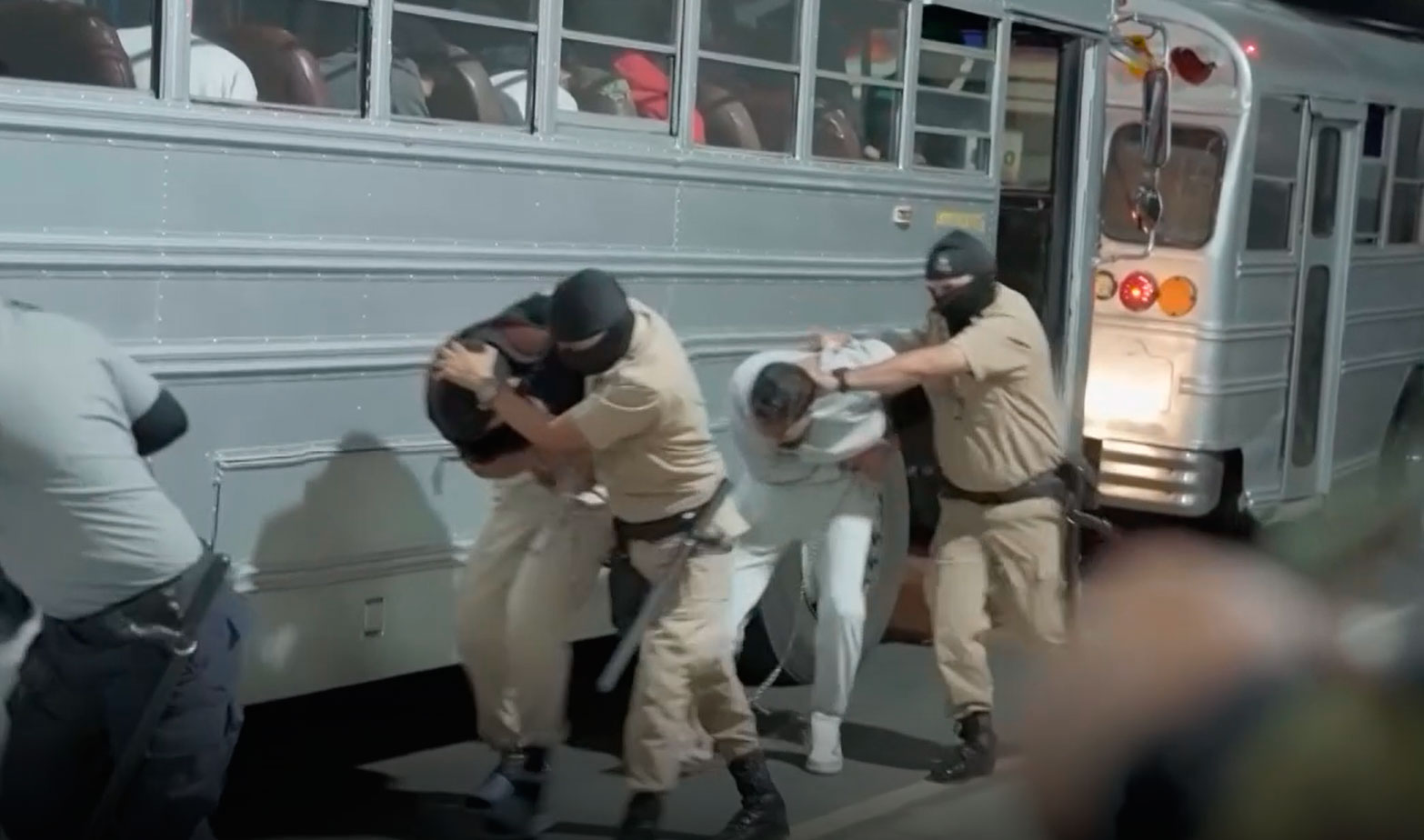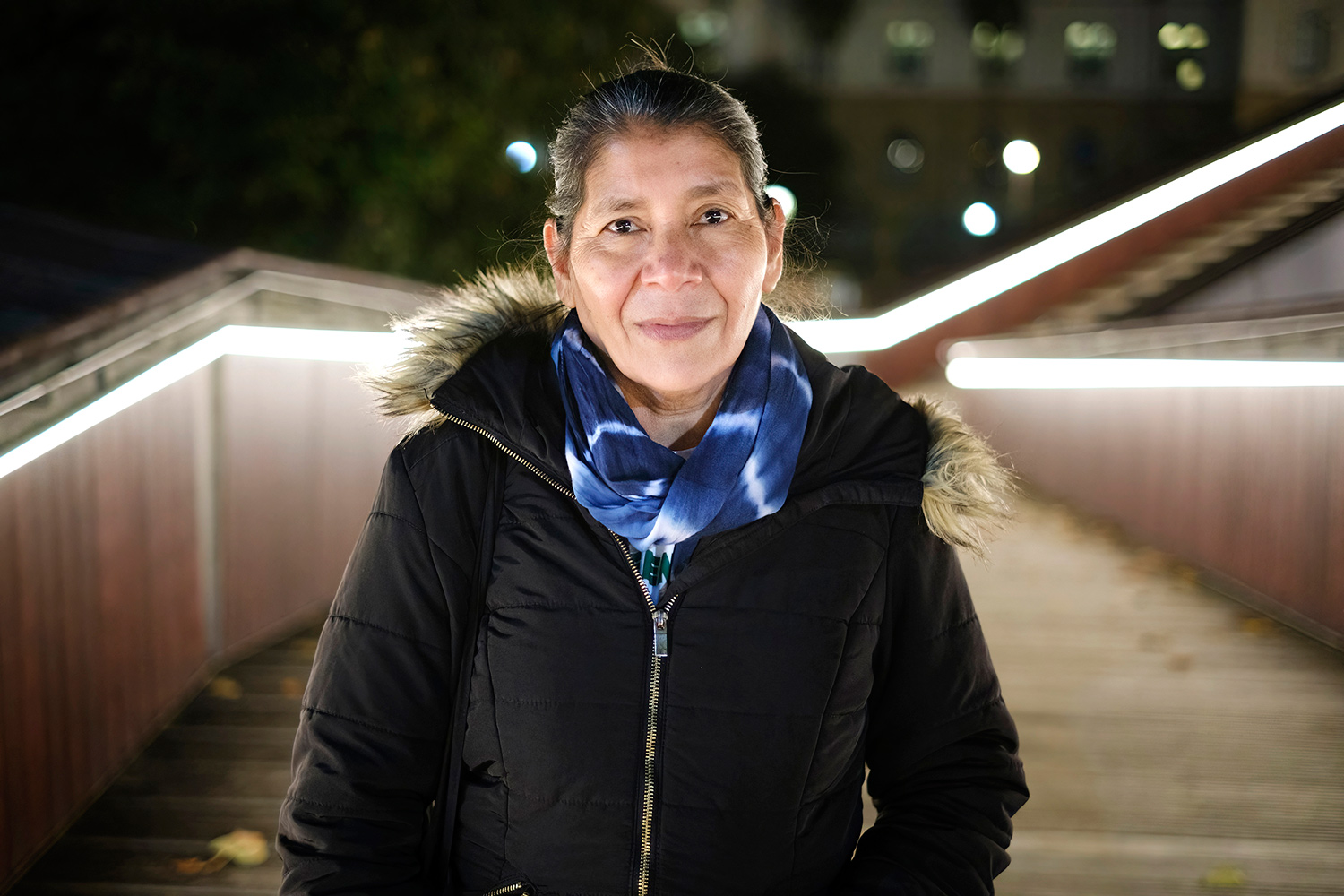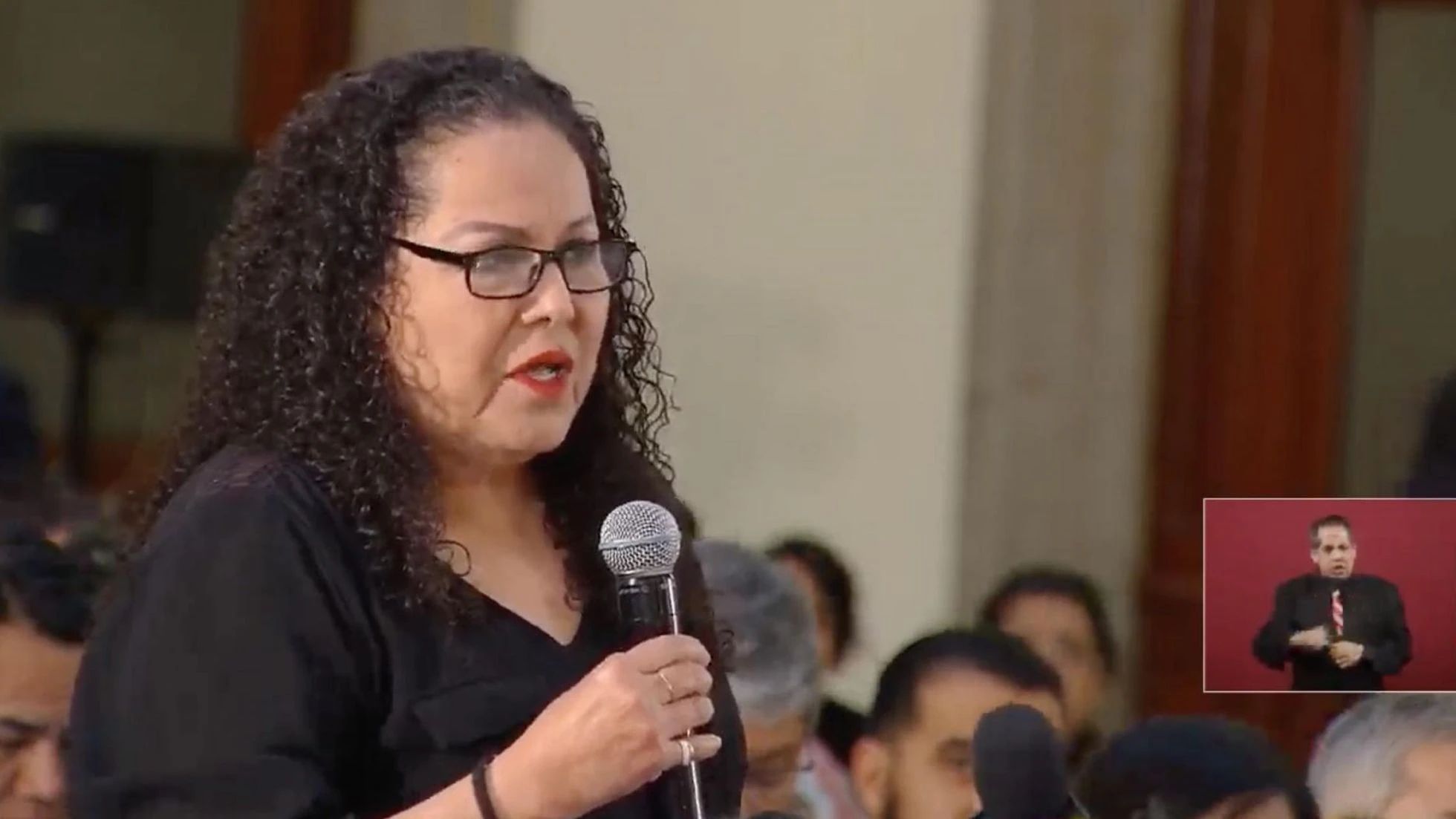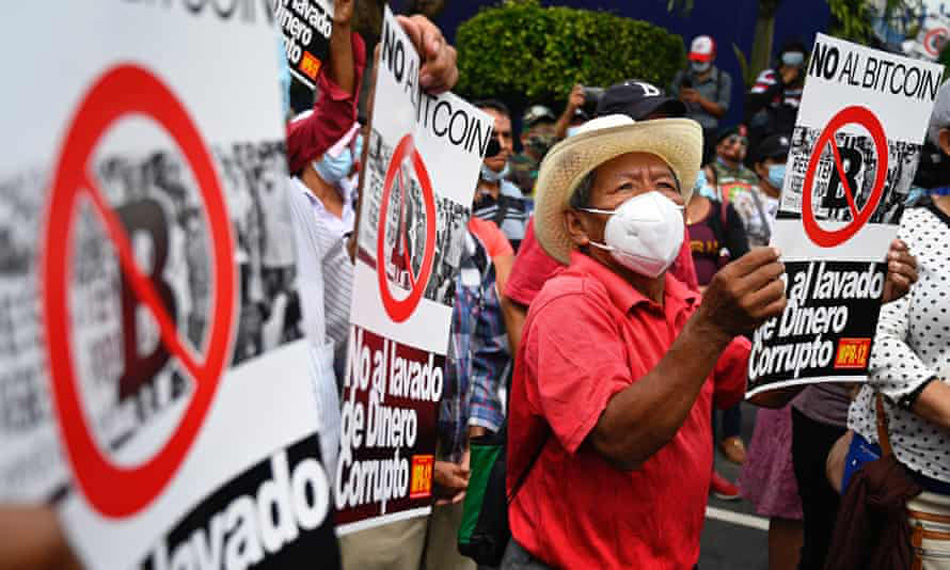"The LGBTI community and women have always been in a state of emergency"
- On February 24, an act of Truth, Justice and Reparation was organized in Bilbao, organized by Mugarik Gabe, Bizitu Elkartea, Feministalde, Women of the World, Zehar Refugees and the Feminist Collective for Development. The event focused on three violence: migrant women, women from the Basque Country and transnational women. They attended as researchers and witnesses Karla Guevara, a member of the Alexandria Collective, and as a researcher and collaborator of the first Alejandra Burgos, of the Feminist Collective for Development. Both Salvadorans. In a post-election context, the reason that led to Euskal Herria generated other questions. These two issues have focused the dialogue.

They have come to Bilbao as part of a symbolic jury. Why did you participate in it?
Alejandra Burgos: Feminist Collective in El Desarrollo, together with Mugarik Gabe, has been immersed in a feminist comprehensive protection process for over a year. Around 2013 we participated in another jury of this kind, in the case of a Salvadoran woman criminalized by abortion. This year we have seen the opportunity to publicize the situation of trans women in El Salvador, because we believe it is important to supplement the violence they suffer, but in El Salvador we cannot do so. That is why we want to do so here, to make that contribution to justice. This project has several lines of work, one of which is integral feminist support. We are here to learn from this proposal, and I, above all, came to help Karla, who is a witness.
Karla Guevara: It has always been said that transwomen do not suffer male violence, but discrimination or stigma. But not so, we suffer congenital violence. We live in a system of endless violence. This patriarchal system, even more complex in the Central American countries, hates all the feminine. The violence suffered by cisgender women is suffered by their status as women; the violence suffered by the transgressive women of the patriarchal system, because it granted us the “privilege” of being appointed men. This transgression is inexcusable in our system. It's not bullying, it's institutional violence. The idea to come here is to symbolically show and complement these violence.
It has been a process of over a year. What has it been like?
K. Guevara: The process has consisted of interviewing straight women, analyzing the male violence suffered by them and defining a common pattern. We've interviewed a lot of women, one of whom I've been. I come to bear my testimony, also from my colleagues.
A. Burgos: First we did individual and then collective interviews. Many of their members have never thought about what repair would be for them. I am very grateful for this opportunity and because Karla wanted to tell her story, because it was not easy. And I'm very happy to start thinking about what repair is.
“In August 2022, the jury approved the name and gender changes. These three years were violent.”
What is it? How can symbolic judgments contribute?
K. Guevara: Male violence affects different areas of life. It must be completed first. When he is responsible for the formation of the state and does not guarantee it, such judgments are, for example, sculptures on behalf of the women killed or designated streets. It is symbolic but has great social and community influence.
A. Burgos: We have done such tests. Last year, we did the initiative we called the People's Justice Party for Manuel. This woman was criminalized by abortion, an undiagnosed cancer, and died under State supervision. We presented the case to the Central American Human Rights Tribunal and condemned the state of El Salvador. Yet the State has not publicly accepted this injustice. That's why we wanted to help their family. Public recognition of state guilt has been a path for the family. In this context we wanted to participate in the jury here to achieve inclusive justice for the women of El Salvador.
They speak of the Government of El Salvador. At the moment, the political situation is complicated: after two years of exception, President Nayib Bukele has won the elections by an absolute majority for the second time. How is the situation?
A. Burgos: The results have not surprised us, but they have irritated us. In El Salvador there has long been no democratic balance. There was some progress on rights thanks to the work of many movements, but in recent years there have been democratic delays, which for our agendas, the feminist agenda and the LGTBI is bad. For this reason, it is important for us to talk about the situation: we are taking advantage of the visit to meet many institutions and share our concerns, but also to make a call for the internationalist movement not to leave El Salvador behind.
K. Guevara: Data kills the story, and we have to dismantle the narrative that the government has built. Feminists, LGTBIQ+ community and ecologists lead this struggle, we have the power to denounce it. The result of the elections is the result of many irregularities: they have changed the number of Members, they have changed the voting system, they have reduced the municipalities from 262 to 44... and that helps the main parties. In addition, irregularities have occurred in the campaign: the rest of the parties have not received funding, the funding channels for the New Ideas have not been made known, they have used public funds – baskets full of food have been distributed, as was done before the elections of members in 2021.
Apart from all this, however, 2.7 million people have voted, both resident in the country and abroad. This means that the Ox party has been supported by 30% of Salvadorans, which modifies the story. There are many foreign votes in El Salvador, precisely because it has campaigned very much abroad, because it has had resources for it. Bufé has become an export product, and those living in exile believe everything is changing. But El Salvador's extreme poverty has increased by 4 points, exceeding 8 per cent. Economic growth has not materialized: last year it was about 2%, the lowest in Central America.

Faced with the exceptional election situation, human rights defenders have denounced many assaults.
A. Burgos: The emergency situation has led to a human rights crisis that has moved from social violence to state violence. Violence against women and sexual violence are nothing new, they are written in the memory of communities since the Civil War, it is to return to the past. We are three branches of the social movement with a female face in favor of the ecologist, feminist and LGBTI movement: it is no coincidence that many of the aggressions of the state are against women. In fact, the emergency situation is being used to threaten the members of the movements. At least 1,176 attacks on defenders, 39 defenders and 17 trade unionists have been arrested. The State has strategies to channel human rights defenders. There are obstacles and threats to freedom of assembly. This shows that it will lead to demobilisation in Community associations.
El Salvador is internationally recognized for its total criminalization of abortion. How is the situation now?
A. Burgos: Abortion is still completely punished. There is no weight against power in the country, and that is why no legislative proposals have been put in place. The last time we tried to introduce a bill we were waiting for the barricades. In 2018 we supported the proposal for the defence of defensive persons and filed it directly. It is difficult to think that in El Salvador progress can be made in eliminating the penalties of abortion when there is a government with increasingly conservative and fundamentalist positions.
Since 2013, the international feminist movement has called for justice for Beatriz de El Salvador, linked to the right to abortion. This case is currently in the Inter-American Court for Human Rights and we hope to receive a favorable ruling so that it does not recur. From the Feminist Collective we work on it: we sensitize to demonstrate that the criminalization of abortion is absurd. We also participated in the campaign for freedom [Freedom for 17], seventeen women with 30-40 year abortion jail sentences. Today, none of them are in jail, and that's a consequence of the struggle. It is not possible to continue making decisions about the bodies of life, women and pregnant women with ideas based on religion.
“It’s hard to think that you can advance in abortion when there is a government with increasingly fundamentalist positions”
At the international level it may not be so well known, but they passed the hate crimes law and the gender identity law is in the process. Karla, you formed part of these two bills. What is the situation for the LGTBI community?
K. Guevara: El Salvador is a machista and ultra-conservative country. This government is also much more conservative than the previous one, because the majority of those who finance the party are conservative. They will not accept progress on these issues.
In 2015, they accepted a series of criminal code reforms for being a very savage year: it was the year Francella Mendez [the trans activist] died. This prompted the criminal code to criminalize hate crimes. With the proposed gender identity law we started in 2018, but since 2016 we were trying to impact, we received no response from any party. The left-wing party, the FMLN, clearly told us that abortion and LGTBIQ+ citizenship accounts were not going to play. When this party lost a significant number of Members it decided to adopt the bill. But to date, the only movement around this law has been the archive. All existing legal proposals regarding women’s and LGTBIQ+ citizens’ defenses are suspended.
Many requests for gender change were then filed. Among them yours.
K. Guevara: We started on our own to make requests for change of name in the courts. We made four requests, first they were cancelled, then they appealed and accepted three. Because, although there is no law to rename El Salvador, there is international law, and there are also laws of El Salvador. They insisted that they couldn't get it going because we didn't offer tests, we went back and then they accepted it. In August 2022, the jury accepted the name and gender changes. These three years were violent, they sent us to do psychological, even social, studies.
What the judge ordered was an administrative formality for the City Hall of San Salvador, but there was also a gender change, so the City Hall said they were not going to make the change. So, although I won my name and gender change, I can't change it because the City of San Salvador doesn't want to do it for religious and moral beliefs. I'm in the legal limbo.
“We have never thought about migrating and now we have it in the head. When you are against a state you are totally unprotected, the struggle is very unbalanced”
Both mention religious fundamentalists. Is there an increase in the country?
K. Guevara: It can be. When I won the sentence, I put it on social media and it became viral. Many religious groups began to denounce this: they wrote it to the president to denounce it, to public officials… Since Buitel has all the power, he called the city council and decided to block it. There is no institutionality, because the prosecution is also kidnapped. These groups have a huge impact on all policies.
A. Burgos: I think yes, more and more fanatic religious expressions are seen. I do not believe that it is only in El Salvador, I would say that it is global: in crisis situations the most conservative tendencies are increasing. In our case, the analyses indicate that there are neoconservative alliances between Catholic and evangelical groups against our agendas. Its intention is to influence policy. When Ox took power, he was blessed by an evangelical pastor. And it is known that there are alliances with the evangelical sectors that support Bufete. There is a great instrumentalization of faith and popular religious beliefs.
And now, what do you expect in the next five years?
K. Guevara: We've never thought about migrating, and that's what we have now in our head. When you are against a state you are totally unprotected, the fight is very unbalanced. We do not rule out repression, this can happen when anger increases. But, in turn, the economy is weak and precariousness can increase anger. We do not believe that it improves, on the contrary. There is a concentration of power that prevents state powers from being functional. So corruption goes up and there's no control over it. I see a complex situation, especially for the social partners.
A. Burgos: I said earlier that there are neoconservative movements, but there is a change in the generations and that is also seen in the streets. We will continue to do what we have done so far: to help territories, women, youth, LGBTI communities -- we will continue to document human rights violations in the hope of justice for the future. We know that power is not forever, and we will continue to dream of a just and egalitarian society. We will continue to create feminist realities, although we know that this has never been an easy fight: the LGTBI community and women have always been in a state of emergency. Our rights have not always been secure, so we do not put in the state all our hope: community and community social networks, that is the way. We will define our challenges as a society and as a country and continue to offer our voices for this just struggle. Silencing is not an option, betting on those in power is being complicit.
1798ko Atzerriko Etsaien Legea aplikatu du, Washingtoneko epaile federal baten aginduaren gainetik. Ustez Tren de Aragua "talde terorristako" kideak dira; Bukelek eskatuta, Mara Salvatruchako 23 kide salvadortar ere deportatu ditu. El Salvadorko makro-kartzelara eraman... [+]
























